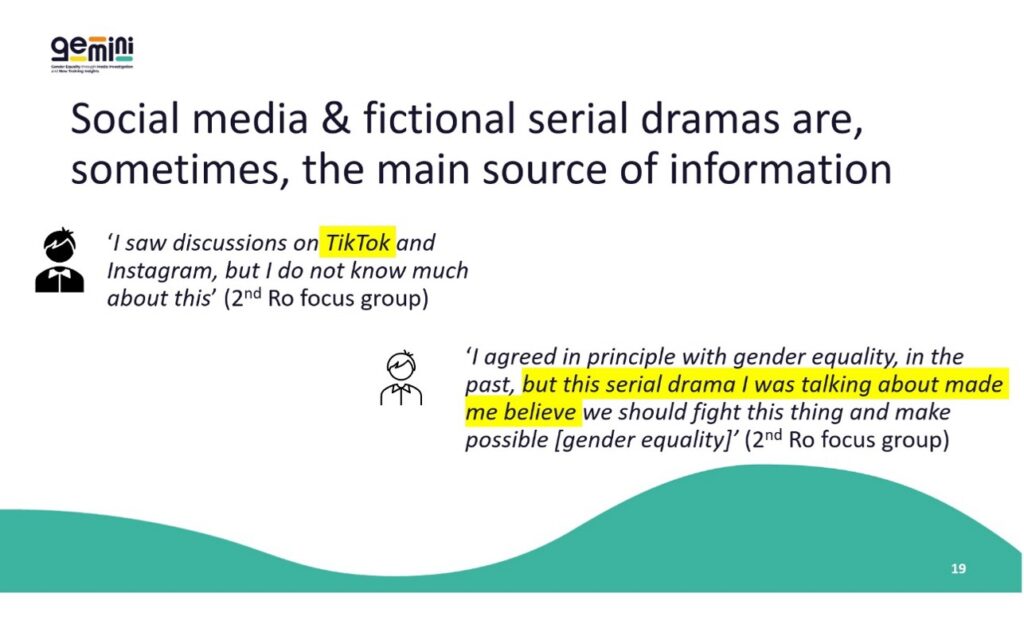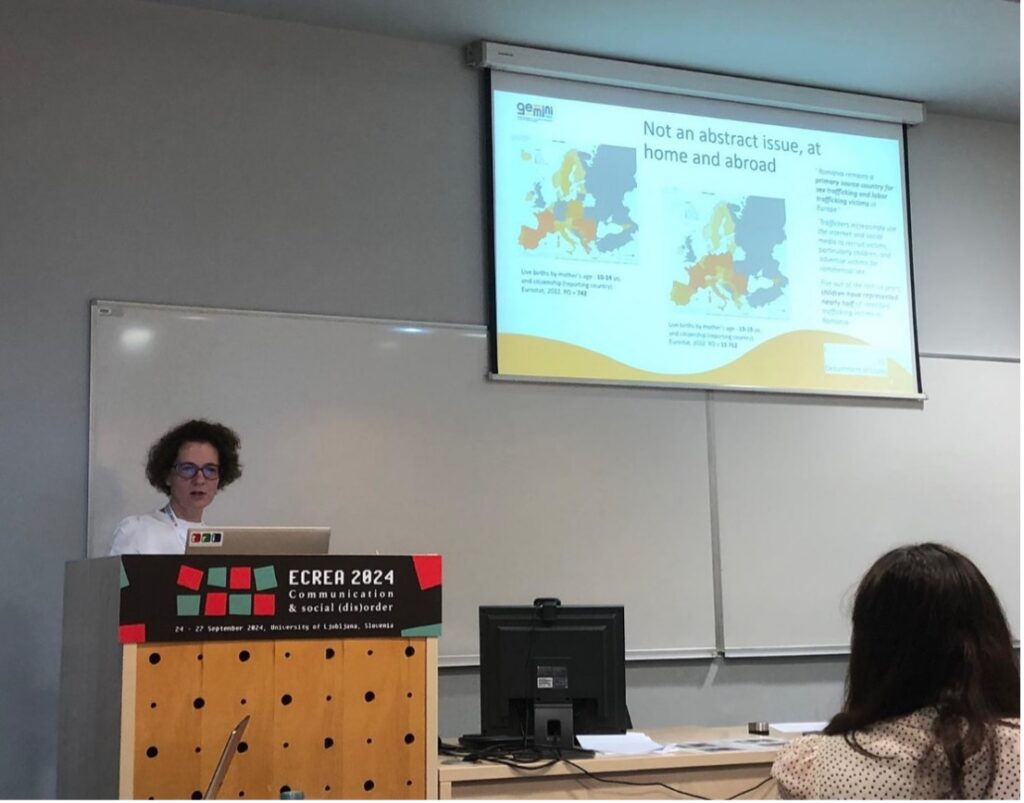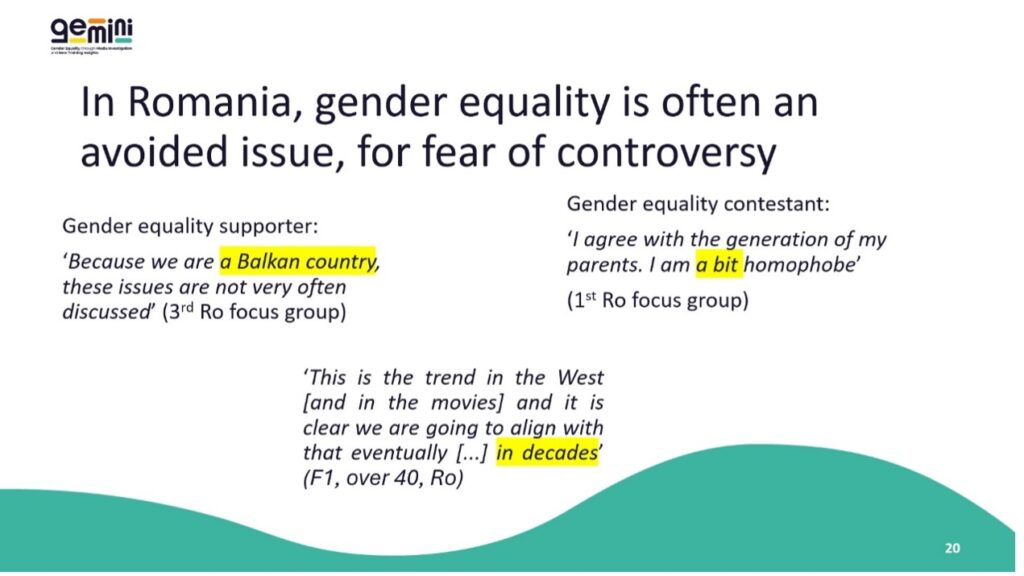Serial dramas give us a glimpse into the future
Romanian GEMINI research results presented at ECREA 2024
By Raluca Radu, 21 October 2024
Since the beginning of the twentieth century, academia has discussed in depth the possible positive and negative effects of mass media. Optimists viewed newspapers, film and radio as mass educators, completing the work of schools and cultural institutions. Pessimists talked about powerful propaganda weapons used by the extreme right and the extreme left and about the destructive effects of pornography and media violence.
After the Second World War, refined sociological instruments showed that media has selective, limited or no effects, depending on context, target public, type of message or source and on the amount of time devoted to promoting a message.
One of the research hypotheses in our GEMINI project was that serial dramas influence young adults’ perceptions about gender and that key scenes from popular dramas may be incorporated in teaching tools on gender equality. When asked directly, during focus groups in Denmark, Ireland, Italy, and Romania, adolescents said that serial dramas do not influence them, but most probably influence the attitudes and behaviour of younger children.

The GEMINI data tell us a different story, as the Romanian team, from the University of Bucharest, showed during the last ECREA congress this September.
GEMINI qualitative analysis on gender and media discussions
At the 10th European Communication Conference in Ljubljana, the Romanian team (Mihai Coman, Anamaria Sasu, Nicoleta Talpeș and I) presented a paper called “The enculturation function of platform algorithms: how Romanian teenagers discover gender equality”. Our presentation was based on data from three focus groups with students and ten in depth interviews with high school teachers.

Data collected in Romania showed that social media and fictional serial dramas are, sometimes, the main source of information on gender equality for students and their teachers – and not the news, official information campaigns or other traditional channels one would expect for the dissemination of fundamental human rights issues.
Serial dramas do not change present attitudes regarding gender equality, but the vision about what the future might look like and what would be acceptable or not from now on. The general perception among people willing to discuss gender issues with a research team is that gender equality is the norm abroad and it will become the norm in Romania, albeit in the distant future.
For example, one student admitted ‘I agree with the generation of my parents. I am a bit homophobe’, indicating this is an attitude from the past. Talking about gender equality, one teacher noticed: ‘This is the trend in the West [and in the movies] and it is clear we are going to align with that eventually […] in decades’.

If gender equality will be the norm in the future, do young people feel confident to talk about it today? The complex setting of the focus group allowed the Romanian team to notice group dynamics, while talking about serial dramas and gender equality. In one of the focus groups, all students indicated that gender equality is a private subject, unlike during the other two focus group exercises. In the first focus group, one of the students claimed that men are better that women, and that this is a proven and natural fact. This led to a moment of silence, followed by an evaluation of gender issues as private matters.
Analysing the group interactions, the Romanian team reached the conclusion that the coping strategy in contexts infused with traditional norms and values is the disapproving silence. Unfortunately, disapproval without a voice leads to little or no possibility, for teenagers, to talk about gender equality issues in family, at school or in their community. This is why we need public policies, supporting a reform of school curricula, and innovative teaching instruments, such as the one created by the GEMINI consortium, to allow safe and enlightening discussions on fundamental human rights for young people.


